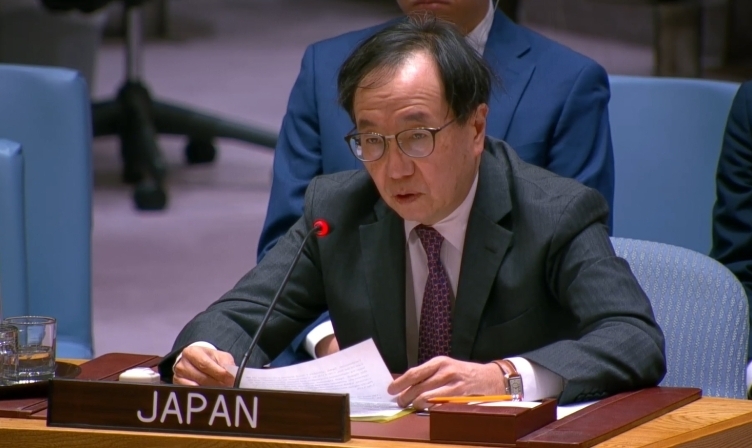Statement by H.E. Ambassador YAMAZAKI Kazuyuki, Permanent Representative of Japan to the United Nations, at the United Nations Security Council Open Debate, Agenda item “Practicing Multilateralism, Reforming and Improving Global Governance”
2025/2/20

(As delivered)
Thank you, Mr. President.
In a world of diverse opinions and positions, multilateralism has been an important pillar of global governance as a means of achieving common objectives through mutual cooperation. The United Nations is at the center of multilateralism in the international community, as it is established as an organ to achieve the purposes of the UN, including the maintenance of international peace and security under Article 1, paragraph 1 of its Charter, through multilateral cooperation.
At the same time, mutual trust and cooperation are indispensable for multilateralism to function, and these cannot exist without sincere observance of basic norms of international law. In other words, the “rule of law” is the cornerstone of multilateralism.
Mr. President,
Any attempt to unilaterally change the status quo by force cannot be tolerated anywhere in the world as it rejects the precondition of multilateralism under the Charter. In this context, Japan condemns in the strongest possible terms the aggression against Ukraine by Russia, a permanent member of this Council, tasked with the primary responsibility for maintaining international peace and security.
Also, the engagement of North Korea's troops in combat against Ukraine, which constitutes a clear violation of international law, including the UN Charter, has expanded the scope of the conflict beyond the region, undermining global peace and security, and is thus totally unacceptable. Not to mention DPRK’s unabated nuclear development and ballistic missile launches are grave violation of Security Council resolutions, and serious challenges against the UN system under the Charter.
Furthermore, Japan considers United Nations Conventions on the Law of the Sea, UNCLOS, as “Constitution for the Oceans” and the basis for multilateral cooperation and dispute settlements at sea. In this regard, Japan expresses serious concern about and strongly opposes any unilateral attempts to change the status quo by force or coercion, which have been taking place at sea, including in the Indo-Pacific region and undermining the rule of law at sea anchored by UNCLOS.
Mr. President,
The United Nations must constantly and tirelessly promote reforms to encourage its member states to work together in achieving the purposes of the UN Charter. As this year marks the 80th anniversary of its foundation, we have to stress that the current structure of the UN does not reflect the contemporary reality of the international community. This is particularly true here at the Security Council.
In the “Pact for the Future”, our heads of state and government shared a sense of “the urgent need” for Security Council reform including the expansion of its membership. This reform has to be realized now.
Japan hopes that the reform will give us greater opportunity to contribute to the work of the Council. In addition, to create a more representative and inclusive Council, it is particularly important to redress the historical injustice against Africa and Japan supports the Common African Position (CAP). To realize Security Council reform, Japan expects that the Africa Group will present its model of Council reform at an early date and that text-based negotiations will begin soon.
Mr. President,
Japan has been contributing to the development of multilateralism as a responsible member of the UN. In an era of division, Japan will continue to actively promote collaboration among states and proactively make efforts to adjust the UN, the cornerstone of multilateral cooperation, to meet the contemporary state of the world.
I thank you.
